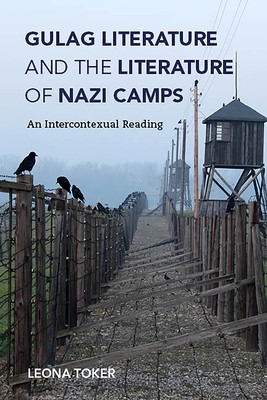
- We will send in 10–14 business days.
- Author: Leona Toker
- Publisher: Indiana University Press
- ISBN-10: 0253043514
- ISBN-13: 9780253043511
- Format: 15.2 x 22.9 x 2.1 cm, hardcover
- Language: English
- SAVE -10% with code: EXTRA
Reviews
Description
Devoted to the ways in which Holocaust literature and Gulag literature provide contexts for each other, Leona Toker's book shows how the prominent features of one shed light on the veiled features and methods of the other. Toker views these narratives and texts against the background of historical information about the Soviet and the Nazi regimes of repression. Writers at the center of this work include Varlam Shalamov, Primo Levi, Elie Wiesel, and Ka-Tzetnik, and others, including Aleksandr Solzhenitsyn, Evgeniya Ginzburg, and Jorge Semprún, illuminate the discussion. Toker's twofold analysis concentrates on the narrative qualities of the works as well as on the ways in which each text documents the writer's experience and in which fictionalized narrative can double as historical testimony. References to events might have become obscure owing to the passage of time and the cultural diversity of readers; the book explains them and shows how they form new meaning in the text. Toker is well-known as a skillful interpreter of Gulag literature, and this text presents new thinking about how Gulag literature and Holocaust literature enable a better understanding about testimony in the face of evil.
EXTRA 10 % discount with code: EXTRA
The promotion ends in 18d.19:35:33
The discount code is valid when purchasing from 10 €. Discounts do not stack.
- Author: Leona Toker
- Publisher: Indiana University Press
- ISBN-10: 0253043514
- ISBN-13: 9780253043511
- Format: 15.2 x 22.9 x 2.1 cm, hardcover
- Language: English English
Devoted to the ways in which Holocaust literature and Gulag literature provide contexts for each other, Leona Toker's book shows how the prominent features of one shed light on the veiled features and methods of the other. Toker views these narratives and texts against the background of historical information about the Soviet and the Nazi regimes of repression. Writers at the center of this work include Varlam Shalamov, Primo Levi, Elie Wiesel, and Ka-Tzetnik, and others, including Aleksandr Solzhenitsyn, Evgeniya Ginzburg, and Jorge Semprún, illuminate the discussion. Toker's twofold analysis concentrates on the narrative qualities of the works as well as on the ways in which each text documents the writer's experience and in which fictionalized narrative can double as historical testimony. References to events might have become obscure owing to the passage of time and the cultural diversity of readers; the book explains them and shows how they form new meaning in the text. Toker is well-known as a skillful interpreter of Gulag literature, and this text presents new thinking about how Gulag literature and Holocaust literature enable a better understanding about testimony in the face of evil.


Reviews